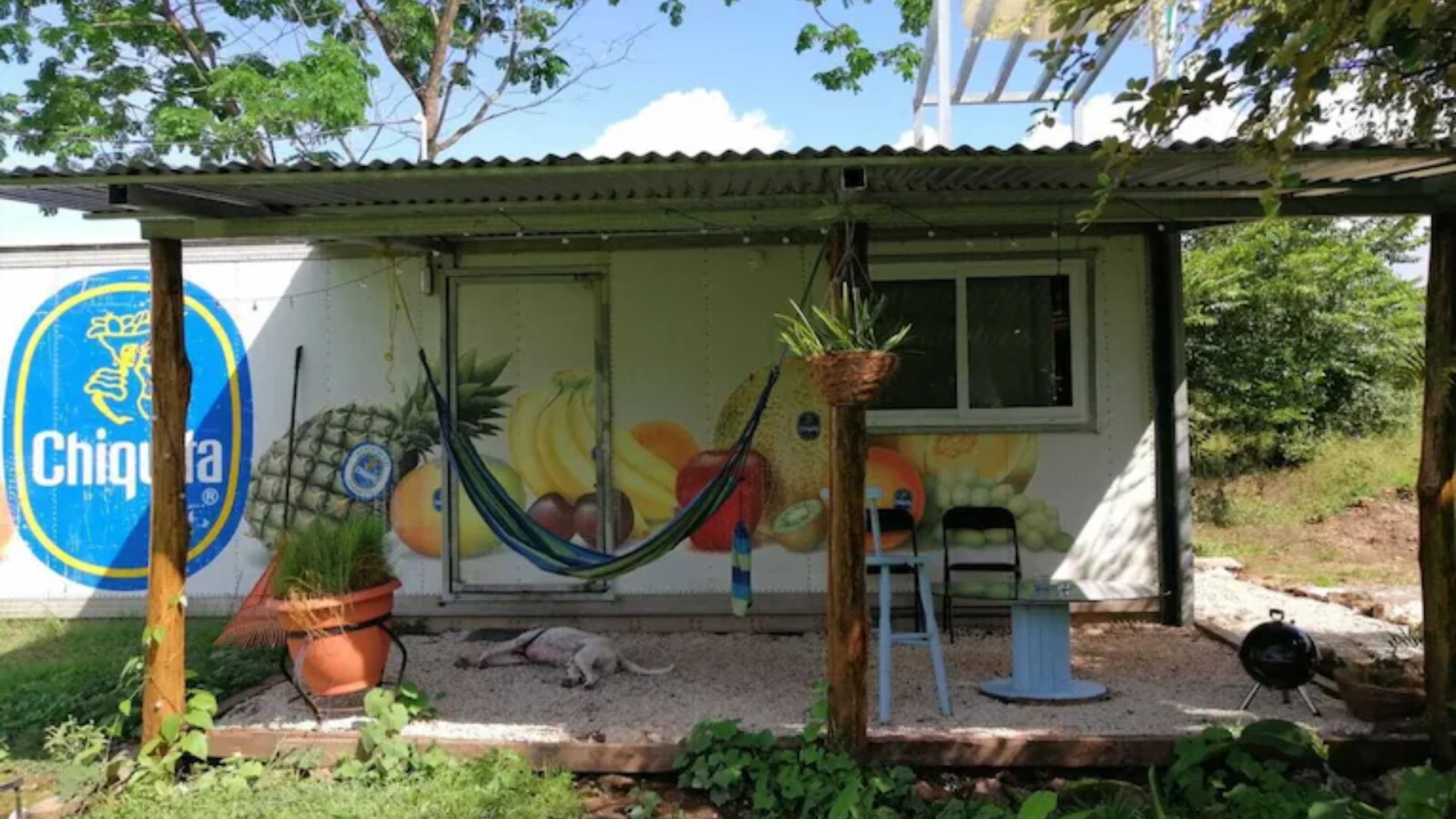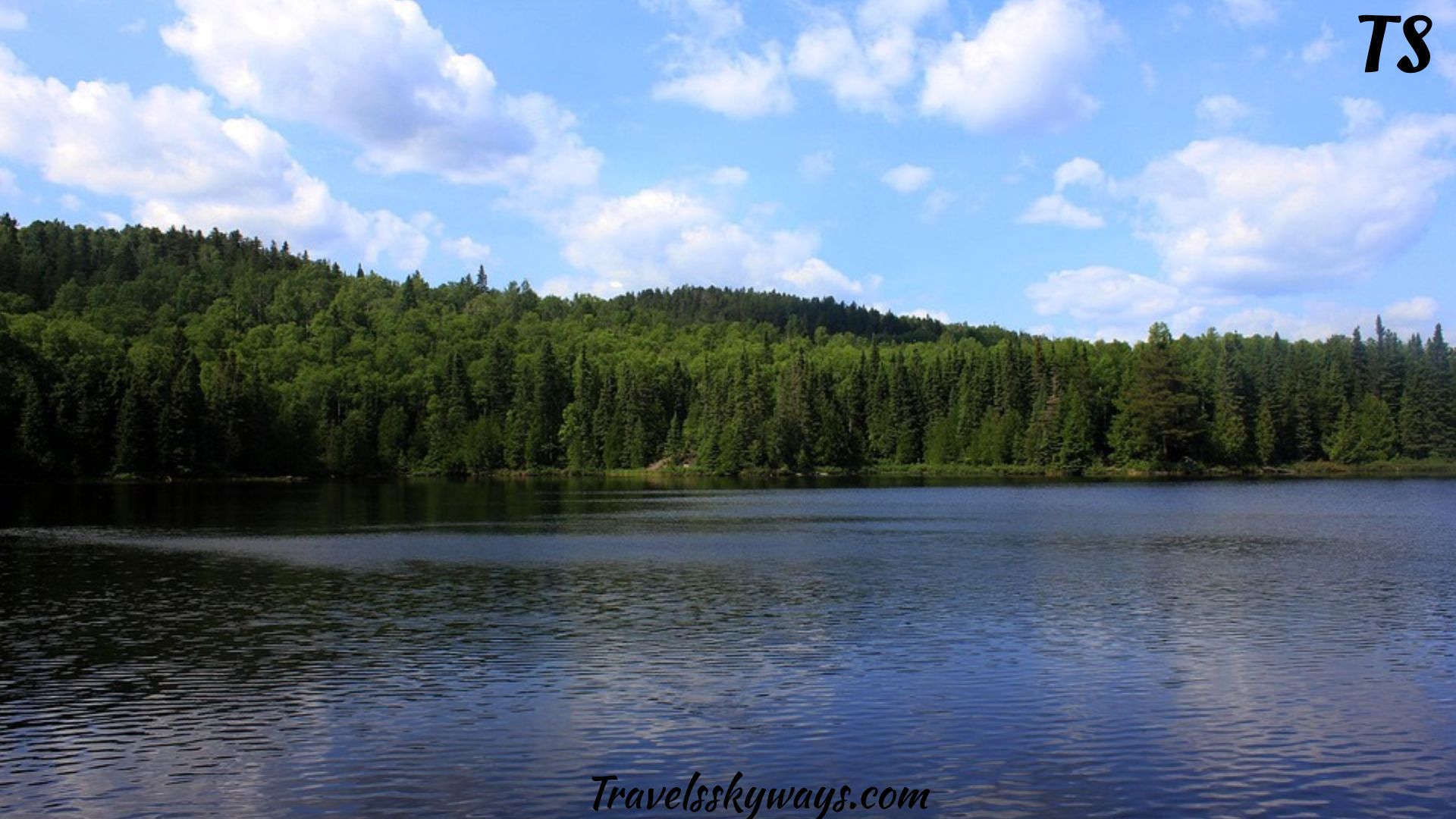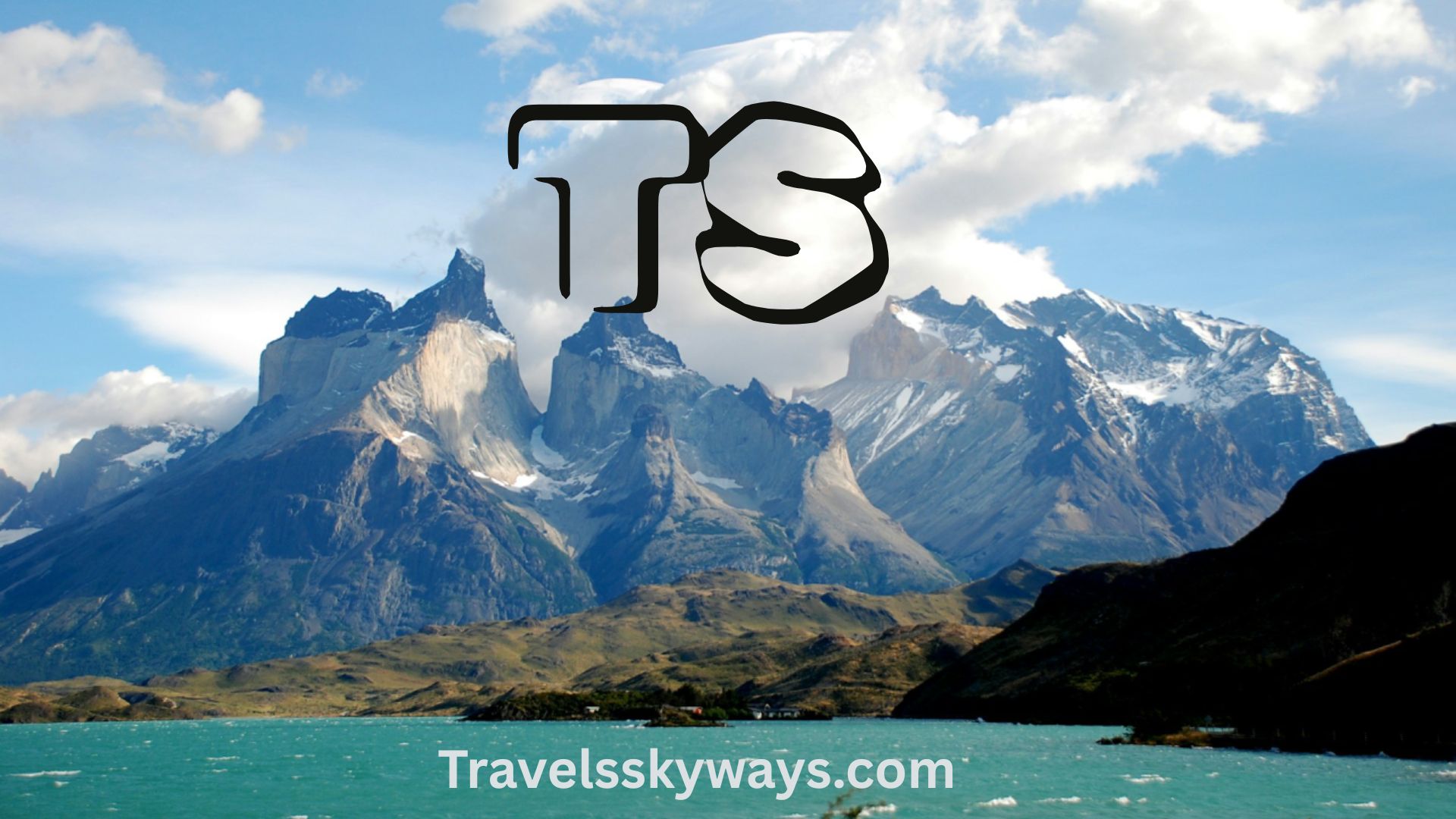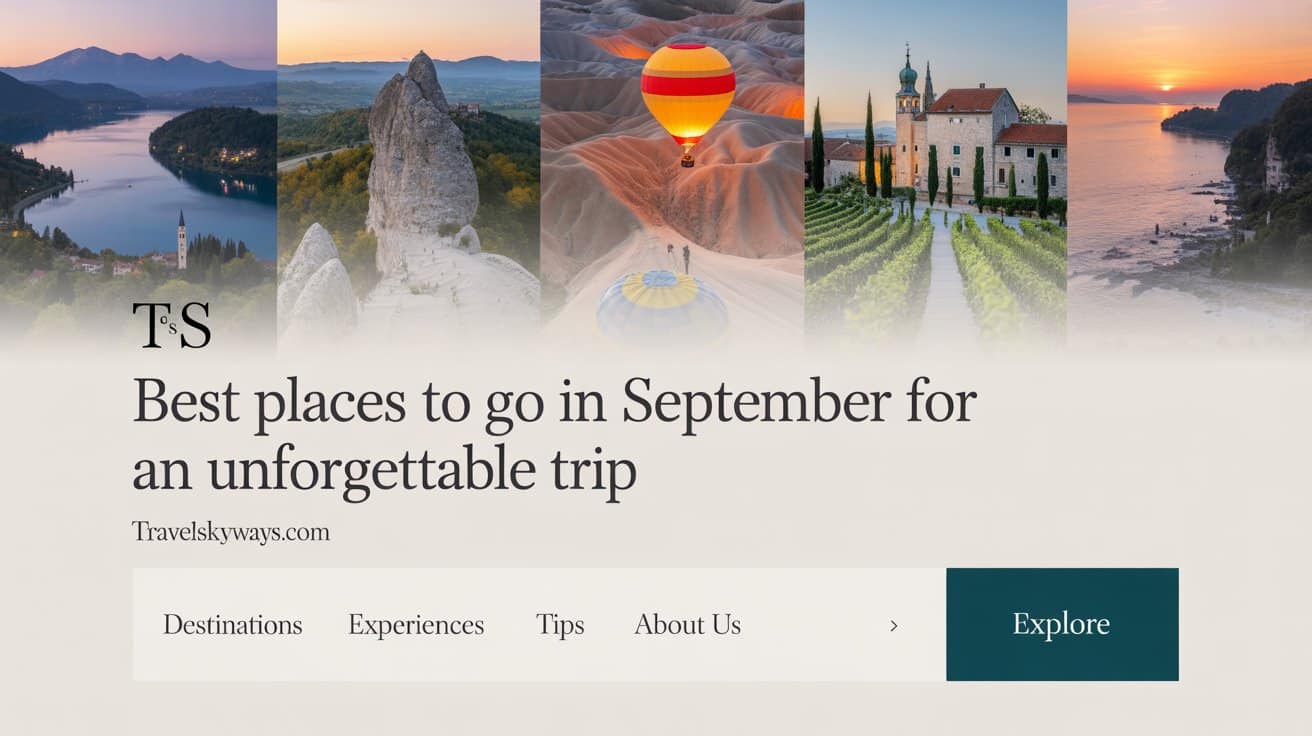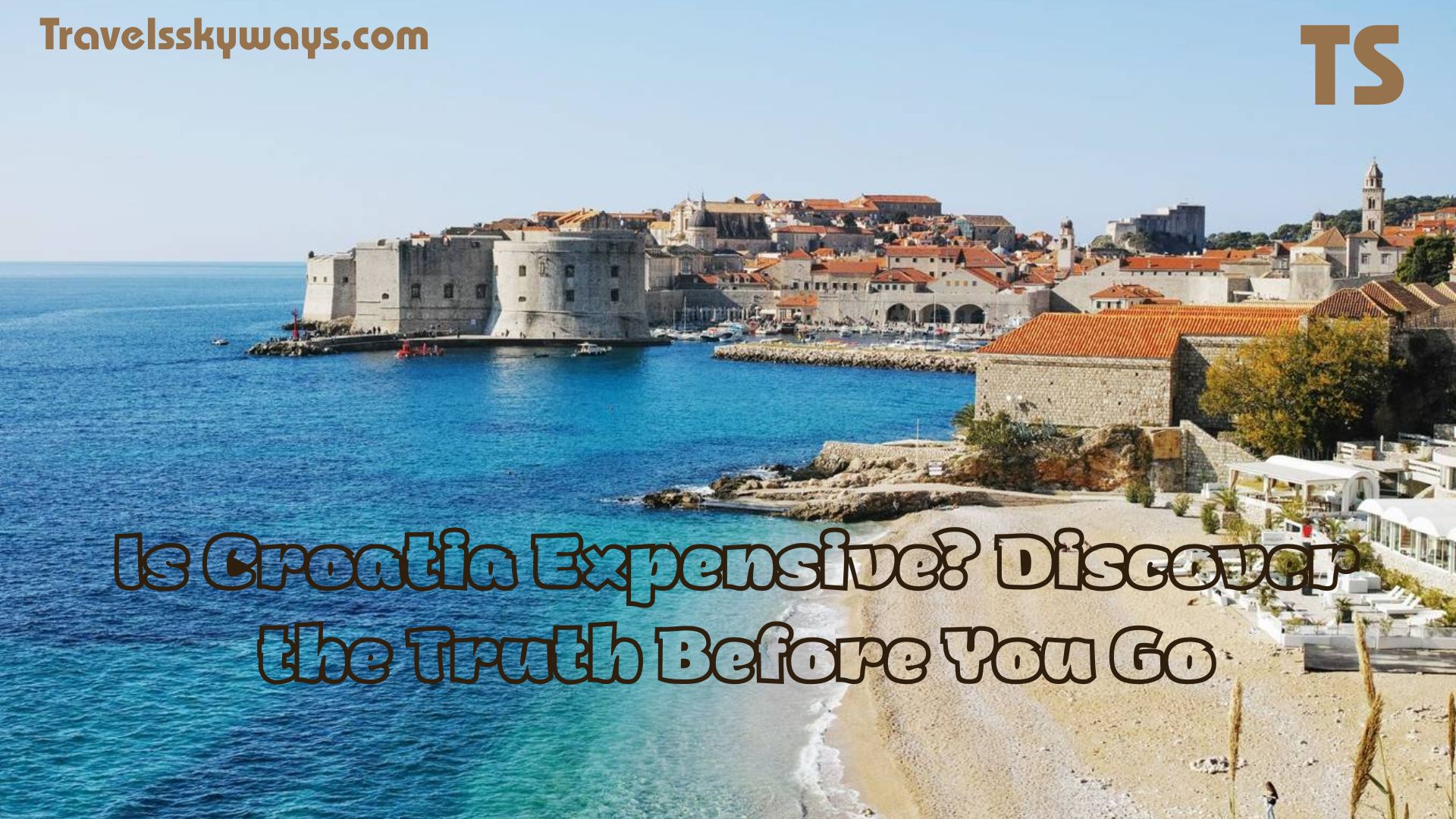
It’s wise to know the actual expenses before you travel, whether you intend to visit Dubrovnik, Split, Zadar, Zagreb, Plitvice Lakes, Brac, or the magical Islands. With facts, statistics, and reliable practical recommendations, let us cut through the clutter and provide clarity for your Croatia trip budget begins here.
Is Croatia Expensive? A Quick Verdict
Let’s confront the main issue head-on:
- Backpacking / Budget trips: expect € 45–60 daily. This includes public buses, street cuisine, dorm visits, and some free activities.
- Mid-range travel: Budget €75–110 daily. That includes apartments, restaurant meals, some car rentals or ferries, and a few tours.
- Luxury travel: Expect €150–220+ per day for splurges on hotels, fine dining, private tours, or yachts.
These figures shift significantly by region and seasonality (peak season, shoulder season, low season)—coastal hotspots cost more, and inland areas offer much better value.
Accommodation Costs in Croatia
| Type of Stay | Price Range (per night) |
| Hostel dorm (budget travelers) | €15–40 |
| Budget hotels/guesthouses | €40–70 |
| 3-star hotels / Airbnb | €70–150 |
| Luxury hotels/villas (coastal) | €200–400+, villas €500+ |
Small towns like Šibenik or Trogir offer significantly lower rates than Dubrovnik or Split.- Camping stays around €10–14 per person, while mobile homes near Plitvice go for €90–140.
Want to shave costs? Think Couchsurfing, Housesitting (via Trusted Housesitters), WWOOFing, or WorkAway. For more flexibility, try HostelWorld, Booking, or Airbnb/Apartment rentals.
Food & Drink Prices in Croatia
Here’s what to expect at all budget levels:
| Category | Price Range |
| Street food (burek, ćevapi, pastries) | €2–8 |
| Konoba/local meal | €10–20 |
| Mid‑range restaurants | €15–40 |
| Coffee | €1.20–3 |
| Beer (draft) | €2–4.50 |
| Wine (glass) | €3–6 |
| Groceries (bread, milk, eggs) | €0.80–3 (packaged) |
- At store value, markets provide the finest cuisine prices, think local vegetables, cheese, or wine.
- Family-run konobas’ daily specials (gablec) can help you save €10–15 with filling regional food.
- In Croatia, gratuities are courteous but not required; normally, 10% in restaurants is left. Bars sometimes collect tips that are rounded up.
Transportation Costs in Croatia
Expect fairly efficient options across the board:
- City public transport: €1.30–2 per ride (Zagreb, Split, Rijeka).
- Intercity buses: €5–15, depending on route.
- Ferries to islands like Brac or Hvar: €5–15 per person; cars add €30–50.
- Car rentals: €30–70/day; gas runs €1.40–1.80/liter.
- Zagreb–Split direct flight: from €83, buses cost €20–34.
- Taxis/start: €2–3.50, plus €1/km. Rides in city centers often reach €5–10.
Pro tip: Use buses over car rentals when possible—or book via Discover Cars for deals.
Activities, Attractions & Entertainment Costs
| Attraction Type | Price Range |
| Plitvice Lakes (one-day ticket) | €10–40 (depends on season) |
| Krka National Park | €10–30 |
| Dubrovnik City Walls | ~€35 |
| Museums (e.g., Museum of Broken Relationships) | €5–15 |
| Game of Thrones tour (Dubrovnik) | €25–45 |
| Island‑hopping boat tours | €20–100/day |
| Kayaking, walking tours | €15–40 |
| Beaches, old-town strolls | Free |
Early or off‑peak Park tickets drop to €10–15. Peak weeks? Be ready for up to €40.- Sunset watching in Zadar, strolling Split’s old town, or checking market offers are memorable experiences—no cost.
- Museums typically charge €5–15; tours around €15–30.
Flights to Croatia
Finding affordable flights is possible:
- Intra-Europe (via Skyscanner, Secret Flying): €50–100 round-trip off‑season; €150–250 peak.
- North America: expect €450–700, depending on route and timing.
- Zagreb, Split, and Zadar are cheaper entry points than island airports like Brač or Hvar Wing.
Currency, Exchange Rates & Paying in Croatia
- Croatia officially uses the Euro; the Kuna may still appear in rural or older places.
- ATMs and card acceptance are widespread; rural markets might prefer cash.
- Use local SIM options (aloSIM, eSIM) for data.
- A dry bag comes in handy for island trips and ferry days.
When Is Croatia Most Expensive?
- Peak season (June–August): prices often double across accommodation, food, transport, and activities.
- Shoulder season (April–May, September): better weather, fewer tourists, much better value.
- Low season (Nov–Mar): cheapest rates, but some coastal attractions or services may close.
- Tourist hotspots (Dubrovnik, Hvar, Split): expect NYC/London-level prices during summer. Smaller towns inland are far cheaper.
Smart Ways to Save Money in Croatia
- Fly to Zagreb or Zadar, not always Dubrovnik or Split.
- Stay in hostels, apartments, or use Couchsurfing, WorkAway, or WWOOFing.
- Shop local markets and self‑cater.
- Use buses and ferries instead of taxis or car rentals.
- Travel in shoulder season for better rates.
- Use tourist cards (e.g., Zagreb Card, SplitCard, CroatiaPass) for transport and attractions discounts.
- Bring a refillable bottle—tap water’s safe.
- Book via Skyscanner, Secret Flying, HostelWorld, Booking, Airbnb/Apartment rentals to compare deals.
- Always pack travel insurance—SafetyWing is a trusted pick.
Budget-Friendly Places to Visit
- Šibenik, Zadar, and Pula—charming, historic, and more affordable than Dubrovnik.
- Islands like Brac, Vis, and Mljet offer quieter, budget‑friendly stays compared to Hvar or Korčula.
- Free gems: old towns, markets, beaches, walking tours, Zadar sunsets.
- Small inland towns and hidden waterfalls give big beauty at low cost.
Croatia vs. Other European Destinations
- Croatia ranks mid-tier on price in Europe—more than Eastern European spots, less than Italy or France.
- It shines for solo travelers, couples, or anyone chasing both cultural experiences and coastal adventures affordably.
7-Day Croatia Budget Estimator
| Travel Style | Daily Estimate (for one) | Total for 7 Days |
| Backpacker / Budget | €45–60 | €315–420 |
| Mid-range Traveler | €75–110 | €525–770 |
| Luxury Traveler | €150–220+ | €1,050–1,540+ |
FAQs
How much does a meal cost in Croatia?
A typical meal at a local konoba or casual restaurant costs around €10–20, while street food or snacks can be as low as €2–8.
What are 5 facts about Croatia?
Croatia has over 1,200 islands, is home to the stunning Plitvice Lakes National Park, and the city of Dubrovnik was a filming location for Game of Thrones. It also uses the Euro currency and boasts a rich history blending Mediterranean and Central European cultures.
What is Croatia famous for?
Croatia is famous for its stunning coastline, historic old towns, beautiful islands like Brac, and natural wonders like Plitvice Lakes National Park.
Which month is best for Croatia?
May, June, and September offer the best mix of pleasant weather, fewer crowds, and reasonable prices during the shoulder season.
Can I live permanently in Croatia?
Yes, many foreigners live permanently in Croatia, but non-EU citizens need to apply for a residence permit and meet visa requirements.
Conclusion
Croatia isn’t inherently expensive—what you spend depends on how you travel. Backpackers can stick to €45–60 daily, mid-range travelers around €75–110, and luxury seekers will find splurges in the €150–220 range. Use smarter choices—book shoulder season, stay local, ride buses, enjoy free attractions, self-cater—Croatia becomes affordable, unforgettable, and worth it.

Travels skyways helps you plan your perfect journey with expert tips, destination guides, travel hacks, and budget advice. Whether it’s a quick getaway or a dream vacation, we’re here to guide your adventure from start to finish.

